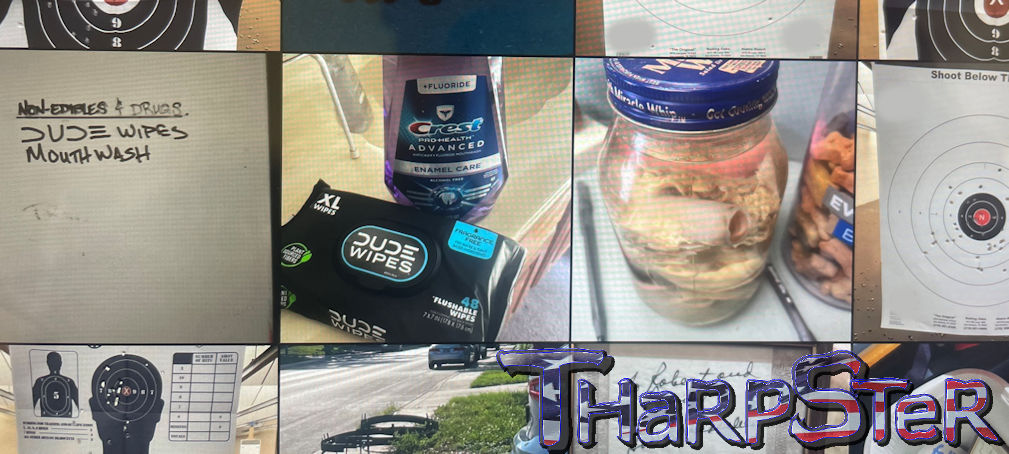In the middle of a government owned office building strategically placed close enough to the goings on of Washington DC to maintain a presence, yet far enough away not to be subject to its influence, the Department of Health & Human Services carries out its stated mission of protecting the health of all Americans.
Deep in the middle of that particular building is housed a department which only few are aware of. Certainly this department is on the books and its existence isn’t a cherished secret held tight to the chest with a clutched fist. Instead, it’s characterized as just another layer of bureaucracy in a governmental agency which is considered to be rich in layers and layers of red tape.
Expanding government bureaucracy had become fashionable and expected over the course of many years. Given recent legislation to socialize the delivery of healthcare to millions of Americans, a few added layers of bureaucracy in Department of Health & Human Services is to be expected.
The New Initiatives Division, or NID, actually has a longer, more official sounding name that only few people even know or care to remember. Brevity being the soul of wit dictates that the name “NID” is the only one that really needs to be known unless the department makes its way into a press conference or garners a mention on a news related talk show hosted by a pundit who just happens to be friendly to the administration.
The NID is charged with identifying where the health of the American people can be improved. Once identified, the NID then has the responsibility of crafting a solution. Fruit born by the NID subsequently makes its way up the food chain to the Secretary of the Department of Health & Human Services. If the Secretary likes it, they then present it to their boss, the President of the United States. In its short life span, the NID has made some great strides for the cause of the greater good. Some of the more popular aspects of the recent healthcare legislation can trace their respective origins not to an enlightened member of Congress who saw fit to throw that little nugget into the bill, but back to ideas sparked in a cubicle somewhere in the middle of the New Initiatives Division at the Department of Health & Human Services.
The NID chief keeps an office deep in that office building. Like all offices in the building, it possesses glass walls so as to give the impression of openness and approachability. There have been plenty of times, when the manager didn’t care for the glass walls. Working in that office puts the boss on display like a fish at the pet store. The only difference was that no one dares to tap on the glass.
Not everyone has an office though. Only managers and those with a higher pay grade have the convenience of four walls and a door. Everyone else has cubicles. Fabric covered boxes which provide just enough privacy to get the work done, but not enough to provide an escape to its occupant are all that are afforded to the faceless paper pushers and bean counters charged with carrying out the mission of the Department of Health & Human Services.
One of the unique engines the NID employs in order to further the mission of the Department of Health & Human Services is to utilize the creativity of interns who are relatively young and just barely out of college. The NID has no need for bureaucrats who have a lifetime of service to the government under their belts. The lifers have lost their ability over the years to think outside of the box. They’re now on the countdown of when they can leave the security of their government paycheck and transition to the security and comfort of their government pension.
Instead, the NID wants young interns who are ripe with new and exciting ideas which could be exploited for all they’re worth. Generally speaking, the interns are put on a “need to know” basis. Quite often, they’re given an assignment without knowing all of the details behind the task at hand. It had been instilled in them early on in their internship that theirs was not to ask, but to do.
Easy as that.
Here’s the problem. Find the solution and a way to deliver it. Don’t ask why it’s a problem in the first place.
For the last year, three interns within the NID have lived and breathed by that rule. On a regular basis, they’re being called into the glass box that is the manager’s office by the one whom they often refer to as the Glass Box Occupant, or the GBO. Of course, references to the GBO as the GBO are never made within earshot of the GBO. Such an offense would be up there with tapping on the glass.
One Friday morning at 8 am, the interns were beckoned into the glass box for their latest assignment. They each took a seat at the small table in the office. Anytime they were in there, they each took the same seat at the table that they always did. They hadn’t done this a year ago when they were just starting their internship. Back then, they sat at the first chair they grabbed without considering it to be an assigned seat. But now, the interns had begun to adhere to an unspoken, undocumented seating chart around that small table.
Seating arrangements weren’t the only template being followed though. The interns had also taken to arriving with the same materials for every meeting. One intern arrived with a laptop and something smelly to drink out of a fancily decorated paper cup from the coffee house down the street. Another intern appeared with a notepad in the leather-bound portfolio and a bottle of water. The other intern rarely brought anything into the office for these meetings. The remaining 25% of a souped up energy drink was usually left in its can at the intern’s cubical. If any notes needed to be taken which were deemed by the intern to be important enough to commit to a medium other than memory, a smart phone application was used to capture a fleeting idea or two.
Without saying so much, the boss had noticed this unconscious behavior of the interns as a sign that it was getting close to time to move this group of interns out of the NID. This latest assignment would probably be the last one dealt out to this particular group.
At the same time, each of the interns knew that none of them were in a permanent position. They had been told up front in the hiring interview some time back that 18 months was the longest anyone had ever served in this position. At this point, each of the interns was starting to check the posting boards on the local intranet in search of other positions to pursue. Jobs in the private sector were also being considered.
Once everyone was gathered around that small table at 8 am on a Friday morning, all attention focused on the manager. “Okay people, I need you to listen very carefully. This one is coming from way up on high and the turnaround time involves a very tight window of opportunity.”
The laptop opened. The notepad in the leather-bound portfolio flipped open to a fresh clean sheet. The smart phone was pulled out, but the application for taking notes was not activated quite yet.
 The manager continued. “I need each of you to come up with an efficient method for the American people to weigh their bowel movements and provide the results to us. This is obviously something they don’t want to do. Your task is to find a way to motivate the American people to do it, and a way to do it.” The keys on the laptop clicked and tapped. The pen scribbled on the notepad in the leather-bound portfolio. The note taking application on the smart phone remained deactivated.
The manager continued. “I need each of you to come up with an efficient method for the American people to weigh their bowel movements and provide the results to us. This is obviously something they don’t want to do. Your task is to find a way to motivate the American people to do it, and a way to do it.” The keys on the laptop clicked and tapped. The pen scribbled on the notepad in the leather-bound portfolio. The note taking application on the smart phone remained deactivated.
The manager didn’t bother to ask if the interns had questions about the assignment. Everything they needed to know had just been told to them. “We’ll meet back in here at 11 am and I want each of you to present me your idea. I’ll send the best idea up the food chain and then make sure that the owner of that idea gets the job they’re posting for when this internship ends.”
The manager studied each of the interns to get a level of comfort from the non-verbal signs that they understood what was being asked of them. “That will be all.”
The laptop closed and clicked shut. It was gathered along with the smelly drink and taken out of the office and back to the cubicle. The pen was capped and the sheets were flipped back over so the notepad could be closed up in the leather-bound portfolio. The cap was put back on the bottle of water. Both returned to the cubicle as well. The smart phone application remained deactivated. It was subsequently taken to the restroom where a game was played on it while its owner considered the weight of things.





